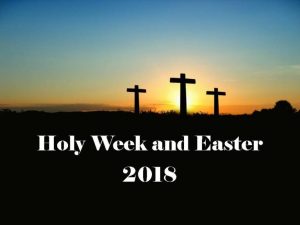The cross was, first and foremost, an instrument of terror. It ensured that the enemies of the Roman Empire were not only put to death, but that they were humiliated and debased in the process. The public nature of their execution instilled fear into the wider population of the nations occupied by Rome.
In the Passion story, we see how God in Christ responds to this brutal exercise of worldly power. Unlike the Zealots, Jesus does not meet violence with violence: standing before Pilate, he eschews the sword. He bears witness to a sovereignty that transcends all earthly rulers: “You would have no power over me if it had not been given from above.” Jesus’s attitude to Pilate contrasts with both the violence of the Zealots and the collusion of Herod and the priests.
Pilate uses his negotiation with the priests to reinforce the subjugation of the Jewish people. Before condemning Jesus to death, he has him flogged, crowned with thorns, and clothed in purple. This is a gratuitous display of force, intended to humiliate Jesus and “to portray just how ludicrous [Pilate] finds the idea of a ‘Jewish king’”.
When Pilate invites the Jewish leaders to “Take him yourselves and crucify him,” he knows that they have no such authority. He is once again underlining their status as a subject people (David Rensberger, Overcoming the World: Politics and community in the Gospel of John).
Their negotiation over Jesus’s fate comes to a climax as the chief priests tell Pilate “We have no king but the Emperor.” On the eve of the Passover celebrations, this is an act of submission to another Pharaoh. Along with the Zealots and the Roman authorities, they have placed their faith in the power of the sword rather than the living God.
Pilate is brutally effective in enforcing the rule of empire. In Rensberger’s words, he is “callous and relentless, indifferent to Jesus and to truth, and contemptuous of the hope of Israel that Jesus both fulfils and transcends”. The brutality of the Roman governor and his soldiers has its echoes throughout history. When one group of human beings has power over another, and this is unobserved or unchecked, injustice and cruelty are all too often the result.
The way in which human beings behave in those extreme circumstances reveals a wider truth about our nature: our capacity for cruelty to, and neglect of, others who are less powerful, whether by our direct action or our quiet collusion.
We may recognise our own sins in the different characters of the Passion narrative: the callous pragmatism of Pilate, the violent rage of the crowd, and the cruelty of the soldiers. In particular, we may recognise, in Peter’s denial of Christ, an echo of our own weakness in the face of evil. When he tells his questioners that “I do not know the man,” Peter is not only denying his relationship with Jesus: he is also denying “all that he has seen, heard, and lived during those years with him. He is denying his own self and his experience” (Jean Vanier, Drawn into the Mystery of Jesus through the Gospel of John).
God does not come into this story of human cruelty and weakness as a wrathful judge: he is found standing among the scapegoats. In the words of our Old Testament reading, “He was wounded for our transgressions, crushed by our iniquities; upon him was the punishment that made us whole.”
Jesus’s death occurs at the very moment when the lambs were slain for Passover. He is the Lamb of God whose sacrifice breaks the power of sin. In the words of St Augustine, “By his death, the one and most real sacrifice was offered up for us. Whatever were the charges by which the principalities and powers held us under bondage, he cleansed, abolished, extinguished.”
The triumph of the cross offers an end to all scapegoating. It not a victory over those who have abandoned, denied, and murdered Jesus: it is a victory for them also. To blame any one person or group for Jesus’s death is to perpetuate the very scapegoating that he has come to end. Each of us has a part in the “iniquities” that “crushed” the Lord. His sacrifice on the cross creates the possibility of “wholeness” for us all.
Christ has won, for all humanity, a path beyond the destructive cycles of violence and retribution to forgiveness and new life.
Angus Ritchie



